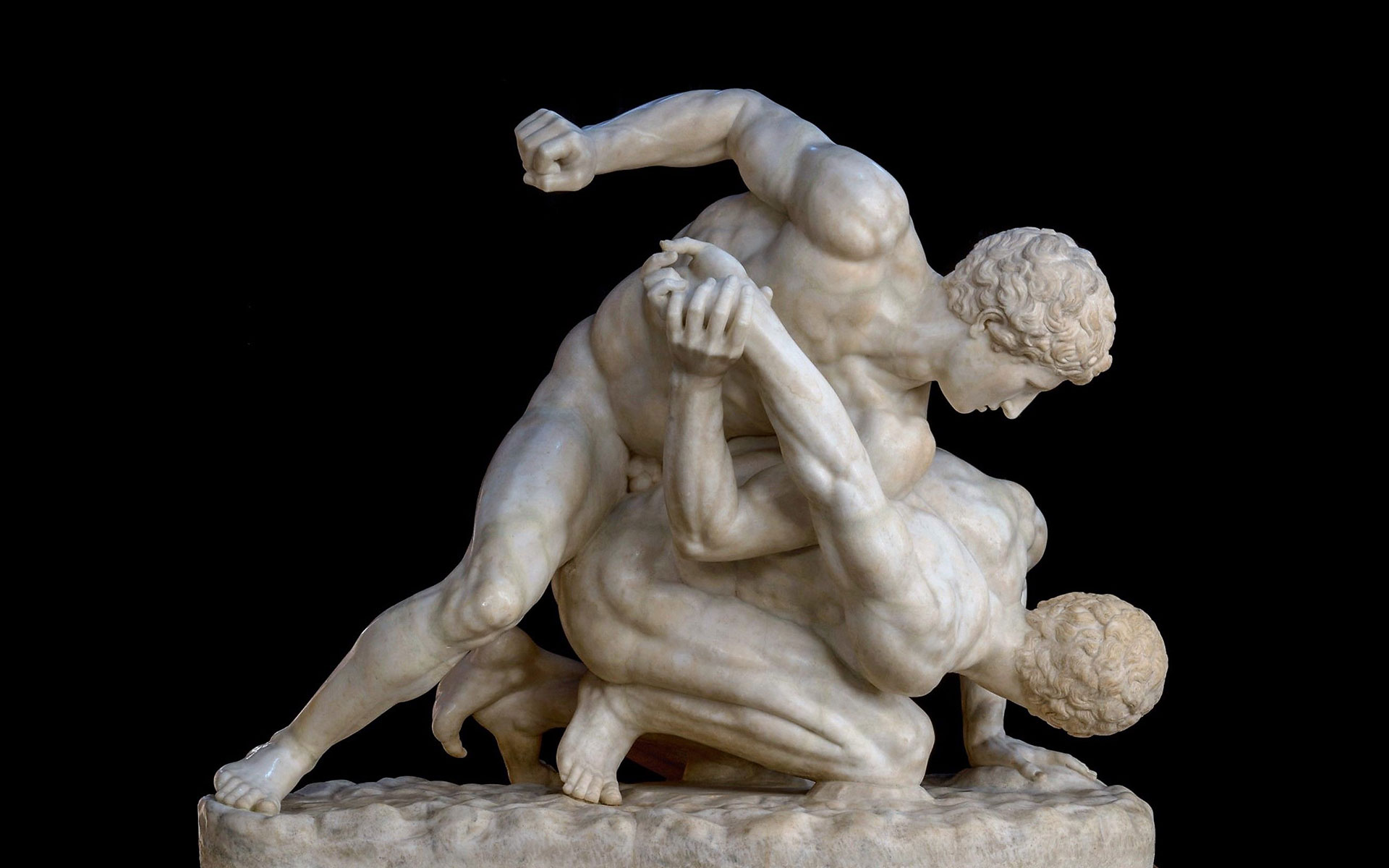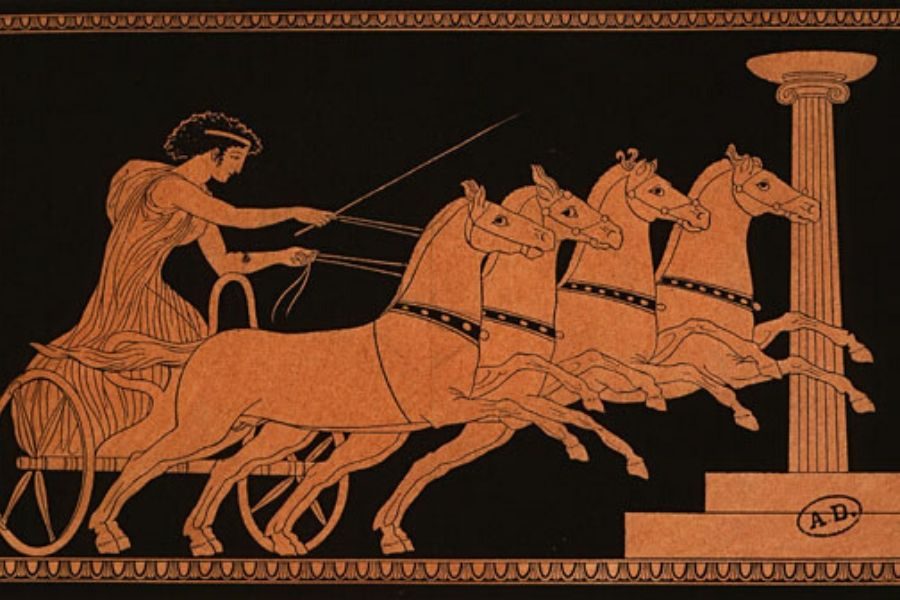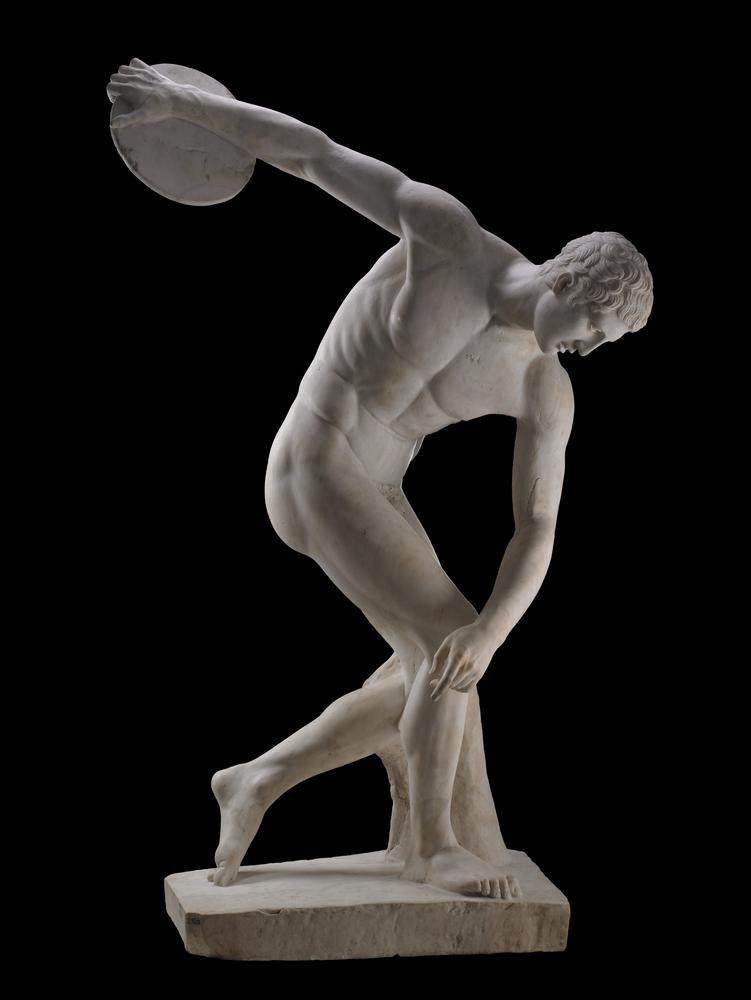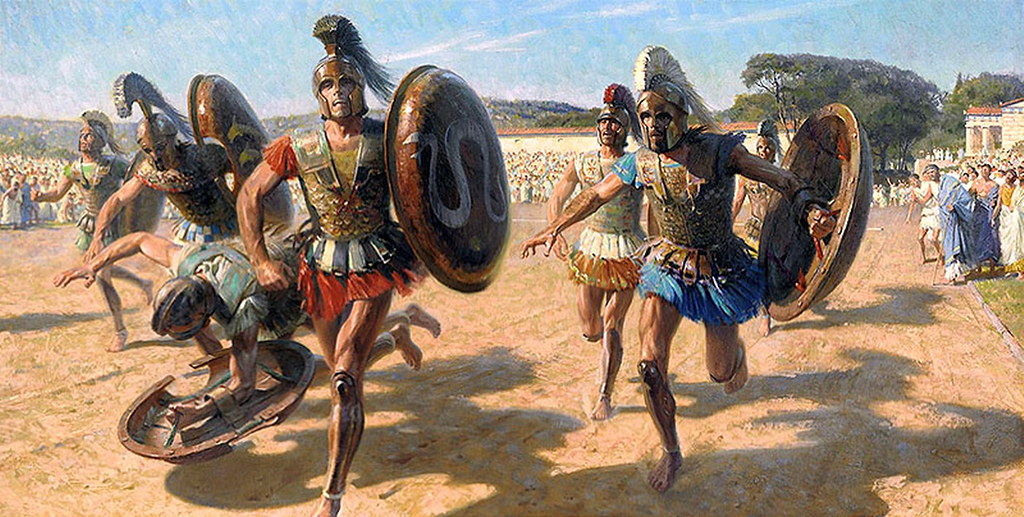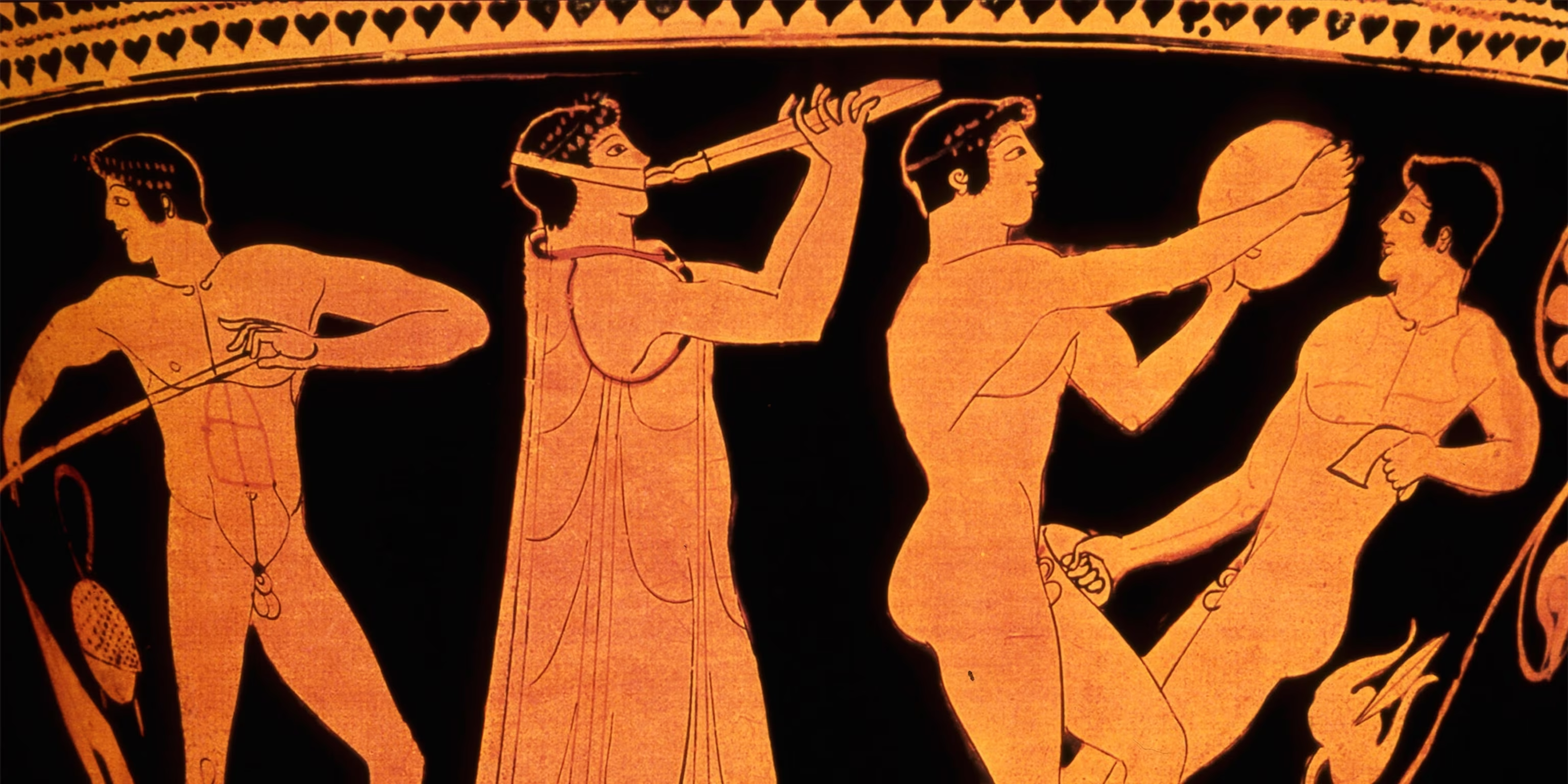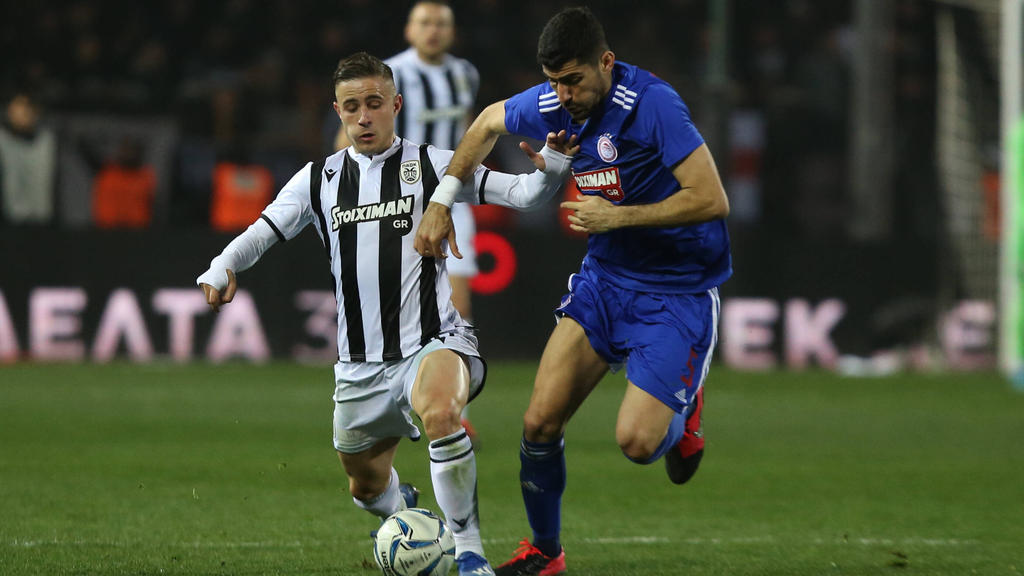Exploring The Rich Heritage Of Traditional Greek Sports
Explore the profound legacy of Greece, the cradle of Western civilization, as we unravel the captivating world of traditional greek sports. From their historical roots to cultural significance, join us on a journey that goes beyond philosophy and literature, delving into the athletic tapestry that has shaped this ancient civilization.
Author:Henrik SchmidtReviewer:Gabriel MartinezNov 13, 20239K Shares124.2K Views
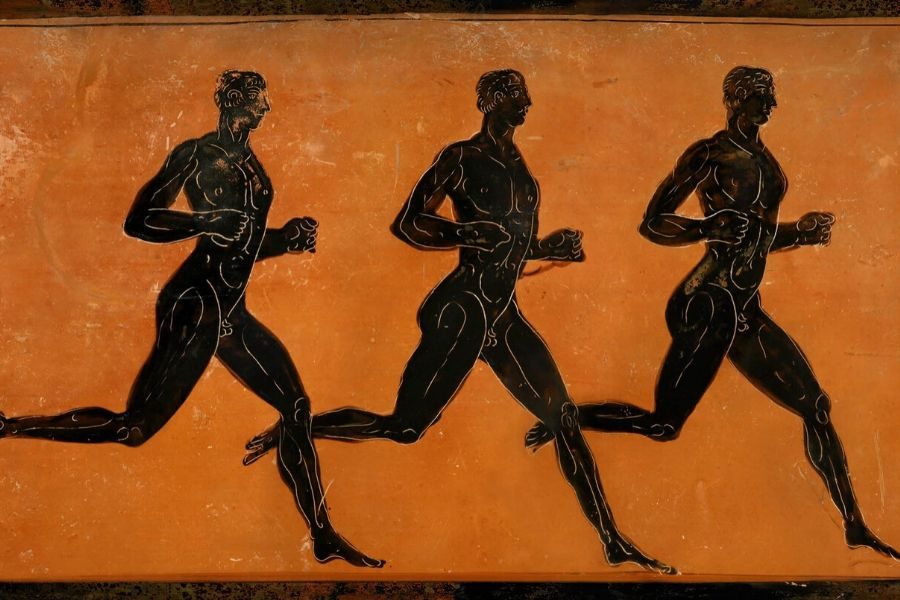
Greece, the cradle of Western civilization, has a rich history that extends beyond philosophy and literature into the realm of sports. Traditional Greek sportshave deep roots, intertwining athleticism with cultural significance. In this article, we delve into the fascinating world oftraditional Greek sports, shedding light on their historical context, significance, and enduring legacy.
Pankration
Historical Origins
Pankration, an ancient Greek combat sport, stands as a testament to the raw athleticism and intense competitive spirit that characterized the ancient Olympic Games. Originating in the mists of ancient Greece, Pankration's roots can be traced back to the 7th century BCE, where it quickly earned its place as one of the most revered and feared sports of its time.
Brutal Yet Revered
In the realm of traditional Greek sports, Pankration held a unique position, being a no-holds-barred combination of wrestling and boxing. The sport encapsulated the essence of physical prowess, endurance, and strategic combat. Renowned for its brutality, Pankration showcased the unyielding spirit of the ancient Greek athletes who engaged in this challenging and revered competition.
Rules And Rituals
Unlike many contemporary sports, Pankration boasted minimal rules, encouraging a primal and unbridled form of competition. Contestants engaged in a relentless struggle, aiming to either force their opponent to submit or, more dramatically, render them unconscious. The absence of restrictive regulations allowed for a display of pure physicality and strategic cunning.
Symbolic Connection To Greek Mythology
Beyond the blood and sweat, Pankration held a profound symbolic connection to Greek mythology. The sport mirrored the epic tales of gods and heroes, embodying the relentless struggle for survival and dominance. The idea of overcoming one's opponent by any means necessary resonated deeply with the Greek ethos, where strength and cunning were celebrated as virtues.
The Agonistic Spirit
Pankration was not merely a physical contest; it was a manifestation of the agonistic spirit intrinsic to Greek culture. The term "agon" encapsulates the idea of competitive struggle and conflict as a means of personal and communal growth. In Pankration, athletes embodied this spirit, pushing their physical and mental limits in the pursuit of victory.
Legacy In The Ancient Olympic Games
The significance of Pankration extended to the grand stage of the ancient Olympic Games, where it captivated audiences and showcased the epitome of ancient Greek athleticism. As part of the pentathlon, Pankration tested the multifaceted skillsof athletes, solidifying its status as a central and revered component of the world's oldest sporting event.
Equestrian Events
Historical Roots
Equestrian events, steeped in history and tradition, trace their origins back to ancient times when horses were not just modes of transportation but revered companions in warfare and daily life. In the modern context, equestrian sports have evolved into a showcase of skill, precision, and the powerful bond between horse and rider.
The Three Pillars - Dressage, Show Jumping, And Eventing
Dressage
- Origin and Evolution:Dressage, derived from the French word for training, has roots in classical horsemanship. It emphasizes the harmonious partnership between horse and rider, showcasing a series of precise and fluid movements. Evolving from military training exercises, dressage has transformed into an art form that combines athleticism and grace.
- Scoring and Judging:Judges evaluate the execution of movements, assessing the horse's obedience, flexibility, and the rider's ability to communicate subtle cues. The result is a captivating display of precision, with competitors aiming for a perfect blend of technical proficiency and artistic expression.
Show Jumping
- Evolution from Field to Arena:Show jumping originated from the practical skill of navigating obstacles in the field. It evolved into a sport that combines speed, agility, and strategy. In the arena, riders guide their horses through a course of jumps, testing their ability to navigate obstacles efficiently while maintaining control and balance.
- Time, Faults, and Strategy:Show jumping competitions involve a race against the clock. Riders must complete the course within a specified time, and penalties are incurred for knocking down obstacles or refusals. The sport demands a unique combination of boldness, precision, and strategic decision-making.
Eventing
- A Triathlon for Horse and Rider:Eventing is the most comprehensive equestrian discipline, combining dressage, cross-country, and show jumping. Originating from military training, eventing tests the versatility and endurance of both horse and rider. It showcases the harmony required to excel in diverse equestrian skills.
- Dressage, Cross-Country, Show Jumping:Eventing unfolds over multiple days, with each phase testing different aspects of the partnership. Dressage assesses precision; cross-country challenges courage and stamina; and show jumping demands finesse and control. The cumulative score determines the winner, emphasizing the importance of consistency across all three disciplines.
The Human-Horse Connection
Trust And Communication
Equestrian events are a celebration of the profound connection between horse and rider. Success in these disciplines hinges on mutual trust, clear communication, and a deep understanding of each other's strengths and limitations. The bond forged between humans and horses is central to the magic and allure of equestrian sports.
The Global Stage
Olympic And International Recognition
Equestrian events have earned their place on the global stage, with inclusion in the Olympic Games since 1900. The sport continues to captivate audiences worldwide, drawing attention not only for its competitive aspects but also for the artistry and athleticism displayed by the participants.
Discus Throw
Symbolism In Sport
Origins In Ancient Greece
The discus throw, a cornerstone of ancient Greek sports, transcends mere physical competition, embodying profound symbolism. Originating in the ancient Olympic Games, this event went beyond showcasing sheer strength, becoming a demonstration of precision and technique. The discus itself, a flat, circular object, carried deep symbolic meaning that resonated with the philosophical concepts ingrained in ancient Greek society.
Circular Nature Of Life
The discus, with its circular shape, symbolizes the cyclical and interconnected nature of life. It mirrored the eternal rhythms of the cosmos, embodying philosophical ideals that explored the continuous cycle of creation, destruction, and renewal. In the hands of the athlete, the discus became a tool to manifest not only physical prowess but also a connection to the profound philosophical underpinnings of ancient Greek thought.
Cultural Significance
Religious And Civic Festivals
The discus throw wasn't merely a sporting event; it held a pivotal role in religious and civic festivals. Athletes, often regarded as revered figures in Greek society, engaged in this discipline to honor the gods and showcase their physical and spiritual prowess. The act of throwing the discus became a sacred ritual, aligning with the divine and emphasizing the spiritual dimensions of athleticism.
Promotion Of Ideals
The sport carried deep cultural significance, reflecting the core values of Greek society. The ideals of balance, symmetry, and harmony, revered in various aspects of Greek life, found a tangible expression in the discus throw. Athletes sought not only to achieve physical excellence but also to embody the principles that permeated their cultural and philosophical landscape.
Mirroring The Greek Pursuit Of Excellence
In a society that held the pursuit of excellence in high regard, the discus throw emerged as a symbol of this relentless quest for perfection. Competitors aimed not only to outperform each other but also to elevate the artistry and precision of their throws, aligning with the broader Greek ethos of pushing the boundaries of what was considered possible.
Enduring Legacy
The discus throw, rooted in symbolism and cultural significance, has left an enduring legacy. Beyond the ancient Olympic Games, its influence extends to the modern era, where athletes continue to engage in this discipline with a deep appreciation for its historical and philosophical roots. The circular motion of the discus still echoes the timeless ideals of balance, symmetry, and harmony, connecting contemporary athletes to the rich cultural tapestry woven by their ancient Greek predecessors.
Hoplite Race
Militaristic Roots
The Hoplite Race, deeply entrenched in the martial traditions of ancient Greece, pays homage to the formidable Hoplites – heavily armed infantrymen who played a crucial role in Greek warfare. This unique sporting event seamlessly blends elements of athleticism and military training, offering a captivating spectacle reminiscent of the challenges faced by soldiers on the ancient battlefield.
A Glimpse Into Ancient Warfare
Competitors in the Hoplite Race donned authentic armor, replicating the gearworn by the Hoplites of old. This dedication to historical accuracy not only adds a layer of authenticity to the event but also immerses participants and spectators alike in the spirit of ancient Greek warfare. The race, in essence, becomes a living reenactment, providing a tangible connection to the military traditions of the past.
Physical And Mental Endurance
The Hoplite Race is not for the faint of heart. Beyond showcasing physical prowess, this demanding sport serves as a crucible for mental fortitude. Competitors navigate challenging courses, facing obstacles that test their discipline, stamina, and strategic thinking. In the midst of the race, the clinking of armor and the thundering footsteps evoke a vivid image of the physical and mental challenges endured by ancient warriors.
Celebration Of The Warrior Ethos
More than mere athletic competition, the Hoplite Race is a celebration of the virtues associated with the warrior ethos in ancient Greek culture. Participants embody the qualities of courage, resilience, and honor that define the idealized image of the ancient Greek warrior. The Race becomes a living testament to the values that shaped the identity of these historical figures.
For an immersive experience of the rich tapestry of Greek culture, visit GreekLish, where history comes alive through a modern lens.
Linking Past And Present
As modern athletes engage in the Hoplite Race, they bridge the temporal gap between the ancient and contemporary worlds. The event serves as a dynamic link to the past, fostering an appreciation for the physical and mental challenges faced by the hoplites. It becomes a living history lesson, allowing participants and spectators to immerse themselves in the martial traditions that shaped the course of ancient Greek civilization.
Tug Of War
Communal Bonding In Ancient Greece
Tug of War, or 'Episkyros' in ancient Greece, transcends the mere demonstration of physical strength. It was a communal activity, deeply ingrained in the social fabric of Greek society, fostering unity and cooperation among participants. Beyond the physical strain, the sport symbolized the strength derived from collective effort, emphasizing the importance of collaboration and solidarity in the ancient Greek community.
A Symbol Of Collective Strength
In the ancient iteration of Tug of War, the intertwining of ropes mirrored the interconnectedness of individuals within a community. The synchronized heaving and pulling symbolized the collective strength harnessed when people unite towards a common goal. This shared endeavor went beyond the individual prowess of each participant, underlining the idea that true strength lies in communal collaboration.
Modern Adaptations - Maintaining The Essence
While the ancient Tug of War was laden with symbolism and ritualistic significance, contemporary variations have not lost sight of its essence. In modern times, Tug of War has found a place in local festivals and celebrations worldwide. Despite the evolution of the sport, the fundamental principles of unity and camaraderie remain intact.
In Local Festivals And Celebrations
Tug of War persists as a popular activity in diverse cultural events and local festivities. The spirited tugs and strategic maneuvers may be more lighthearted than the ancient ritual, but the underlying essence endures. Participants, whether engaged in friendly competition or more structured events, still experience the bonding that comes from pulling together in unison.
Team Building In Contemporary Settings
In corporate and team-building environments, Tug of War serves as a metaphor for collaboration and teamwork. The lessons learned from the ancient practice, about the strength derived from collective effort, find practical application in fostering cohesion and cooperation within modern groups.
Uniting Across Time
As the ropes stretch across time, linking ancient Greece to contemporary societies, Tug of War stands as a timeless testament to the enduring power of communal activities. Whether in the dusty arenas of ancient Olympia or the vibrant fields of a modern local fair, the spirit of unity and camaraderie persists, reminding participants that strength is magnified when individuals come together in pursuit of a common purpose.
Future Prospects - Integrating Traditional Greek Sports In Modern Culture
Integration With Modern Sports Culture
The integration of traditional Greek sports into the broader spectrum of modern sports culture holds immense promise for the future. By establishing common ground and connections between ancient and modern sporting practices, a harmonious coexistence can be achieved, offering a nod to the past while embracing the innovations of the present.
Bridging The Gap
As traditional Greek sports find their place in the contemporary sports landscape, there's an opportunity to bridge the gap between historical practices and the preferences of modern athletes and enthusiasts. This integration can lead to a dynamic fusion, preserving the authenticity of ancient sports while making them relevant and appealing to a broader audience.
Sporting Events And Leagues
The creation of sporting events and leagues dedicated to traditional Greek sports could become a catalyst for integration. These events could attract athletes and spectators alike, fostering a renewed interest in the historical and cultural significance of these sports. As modern technology and media platforms continue to evolve, they offer a powerful means to showcase traditional sports to a global audience.
Tourism And Cultural Experiences
Greece's enduring popularity as a tourist destination provides a unique platform to promote traditional sports as integral cultural experiences. Visitors, drawn to the rich tapestry of Greek history, can enhance their overall cultural immersion by participating in or observing these sports during their stay.
Authentic Cultural Engagement
For tourists eager to delve into the heart of Greek culture, the inclusion of traditional sports in their itineraries provides an authentic and immersive experience. Whether witnessing a reenactment of ancient competitions or participating in modified versions of these sports, visitors can forge a deeper connection with the country's heritage.
Sporting Tourism
The promotion of traditional sports aligns seamlessly with the concept of sporting tourism. Beyond the iconic historical sites and scenic landscapes, tourists seeking unique and memorable experiences may find themselves drawn to events featuring traditional Greek sports. This not only diversifies the tourism offerings but also contributes to the preservation and appreciation of cultural heritage.
Traditional Greek Sports - FAQs
What Is The Traditional Sport In Greece?
One of the traditional sports in Greece is Pankration. Pankration was a combination of wrestling and boxing and was part of the ancient Olympic Games. It was known for its intense and brutal nature, emphasizing both physical strength and strategic combat.
What Sports Did Ancient Greek Do?
The ancient Greeks engaged in a variety of sports and athletic competitions. Some of the notable sports included:
- Running and Sprinting:Races were a fundamental part of ancient Greek sports, with events like the stadion (a sprint of about 200 meters).
- Discus Throw:Athletes competed in the discus throw, testing their strength and precision with a circular disc.
What Are 2 Popular Sports In Greece?
- Football(Soccer):Footballis immensely popular in Greece, both at the professional level with the Super Leagueand on the grassroots level. The passion for footballis evident in the fervent support for local teams and the national footballsquad.
- Basketball:Basketball holds a significant place in Greek sports culture. The Greek basketball league is competitive, and the national basketball team has achieved notable success on the international stage. The sport enjoys widespread popularity, with a strong fan base supporting both domestic and international competitions.
Conclusion
Traditional Greek sports, deeply rooted in history and culture, continue to inspire and captivate. From the intense combat of Pankration to the precision of the discus throw and the symbolic unity in Tug of War, these sports offer a glimpse into the values cherished by ancient Greeks. As we explore these traditional sports, we find not just physical activities but living expressions of a cultural heritage that remains vibrant to this day.

Henrik Schmidt
Author
Henrik Schmidt is a dedicated writer focusing on sports, betting, and various entertainment aspects related to the sporting world. With a passion for exploring the intersections of sports and entertainment, Henrik brings a unique perspective to his articles. His expertise in these areas ensures that readers receive informative and engaging content, making him a valuable contributor to the sporting community.

Gabriel Martinez
Reviewer
Gabriel Martinez is a respected author at Tennessee Independent, renowned for his expertise in covering News and Sports topics. With a comprehensive understanding of current events and a knack for delivering accurate and engaging content, Gabriel provides readers with insightful analysis and compelling narratives. His dedication to factual accuracy and commitment to delivering authoritative content make him a trusted source for news and sports enthusiasts on Tennessee Independent.
Latest Articles
Popular Articles
